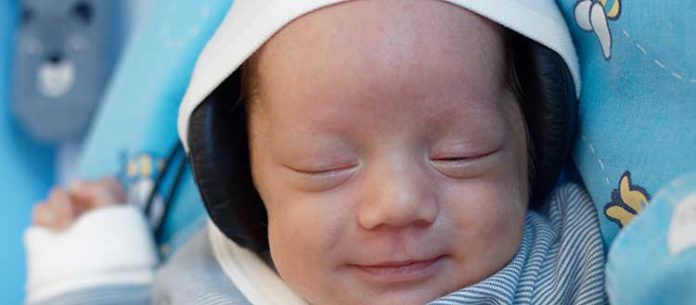Almost 1% of children are born very prematurely in Switzerland. However, recent advances have offered them a good chance of survival, still, the children are at high risk of developing neuropsychological disorders.
As a solution, scientists at the University of Geneva (UNIGE) and the University Hospitals of Geneva (HUG), Switzerland, have developed music for such babies. Most fascinating is, the outcomes reveals that the neural networks of premature infants who have listened to this music, and in particular a network involved in many sensory and cognitive functions, are developing much better.
Scientists begin with a practical idea: since the neural deficits of premature babies are due, at least in part, to unexpected and stressful stimuli as well as to a lack of stimuli adapted to their condition, their environment should be enriched by introducing pleasant and structuring stimuli.
Petra Hüppi said, “As the hearing system is functional early on, music appeared to be a good candidate. But which music? Luckily, we met the composer Andreas Vollenweider, who had already conducted musical projects with fragile populations and who showed great interest in creating music suitable for premature children.”
Lara Lordier, Ph.D. in neurosciences and researcher at the HUG and UNIGE said, “It was important that these musical stimuli were related to the baby’s condition. We wanted to structure the day with pleasant stimuli at appropriate times: a piece of music to accompany their awakening, a piece of music to accompany their falling asleep, and music to interact during the awakening phases.”
“To choose instruments suitable for these very young patients, Andreas Vollenweider played many kinds of instruments to the babies, in the presence of a nurse specialized in developmental support care. The instrument that generated the most reactions was the Indian snake charmers’ flute (the punji). Very agitated children calmed down almost instantly, their attention was drawn to the music! The composer thus wrote three sound environments of eight minutes each, with punji, harp and bells pieces.”
Scientists conducted the study with a group of premature infants who listened to the music, a control group of premature infants, and a control group of full-term newborns to assess whether the brain development of premature infants who had listened to the music would be more similar to that of full-term babies. By using functional MRI, scientists observed brain activity. They found, without music, premature babies generally had poorer functional connectivity between brain areas than full-term babies, confirming the negative effect of prematurity.
Lara Lordier said, “The most affected network is the salience network which detects information and evaluates its relevance at a specific time, and then makes the link with the other brain networks that must act. This network is essential, both for learning and performing cognitive tasks as well as in social relationships or emotional management.”
In intensive care, children are overwhelmed by stimuli unrelated to their condition: doors open and close, alarms are triggered, etc. Unlike a full-term baby who, in utero, adjusts its rhythm to that of its mother, the premature baby in intensive care can hardly develop the link between the meaning of a stimulus in a specific context.
On the other hand, the neural networks of children who heard Andreas Vollenweider’s music were significantly improved: the functional connectivity between the salience network and auditory, sensorimotor, frontal, thalamus and precuneus networks, was indeed increased, resulting in brain networks organization more similar to that of full-term infants.
The first children enrolled in the project are now 6 years old, at which age cognitive problems begin to be detectable. Scientists will now meet again their young patients to conduct a full cognitive and socio-emotional assessment and observe whether the positive outcomes measured in their first weeks of life have been sustained.
The study is published in the journal PNAS and funded by the Swiss National Science Foundation as well as, among others, by the Prim’Enfance Foundation.
